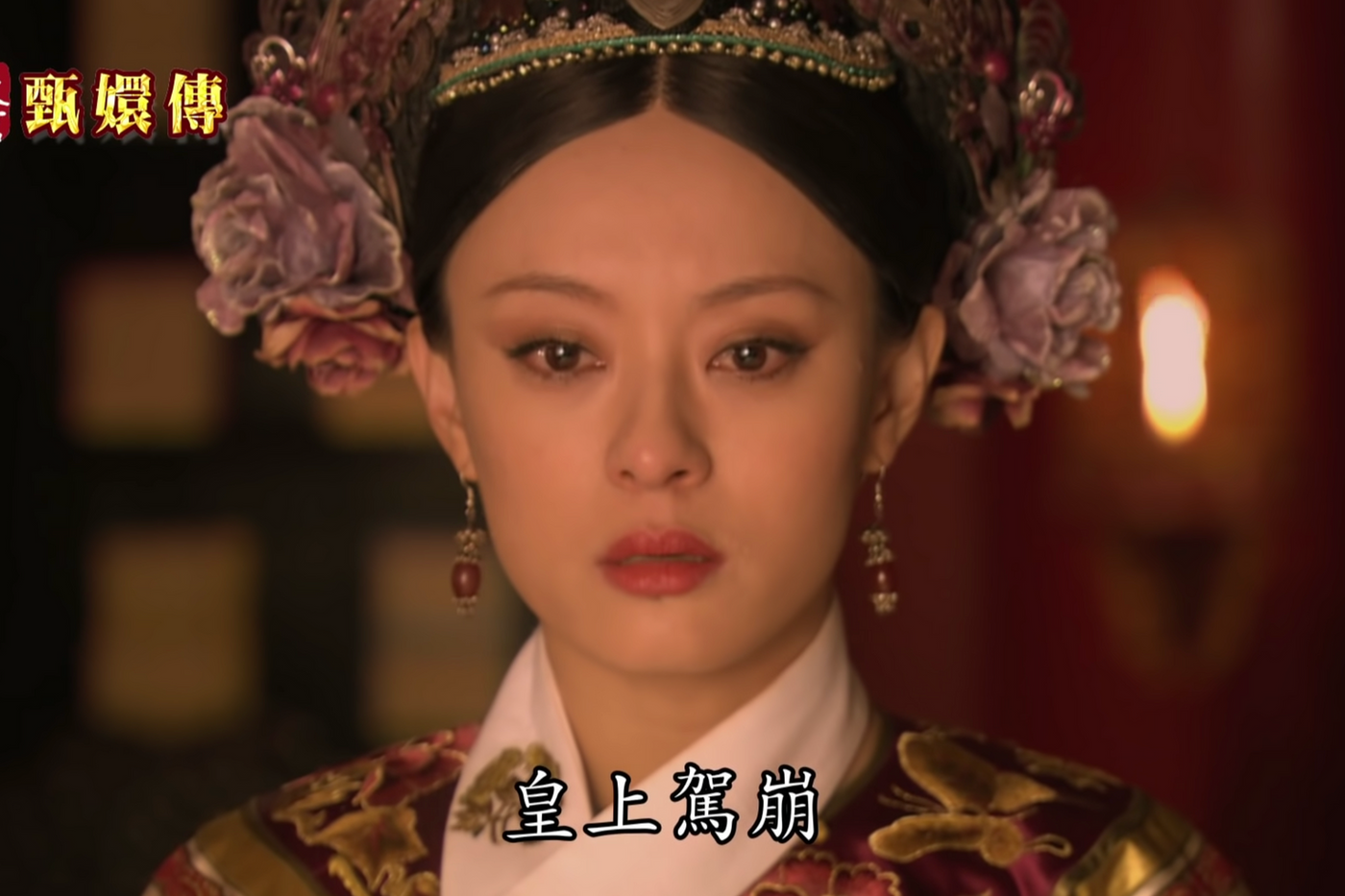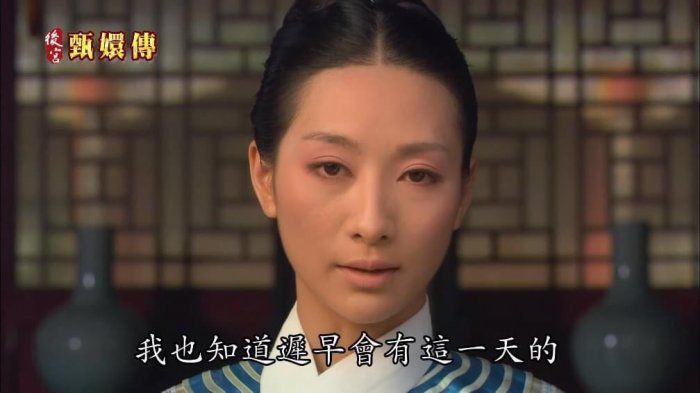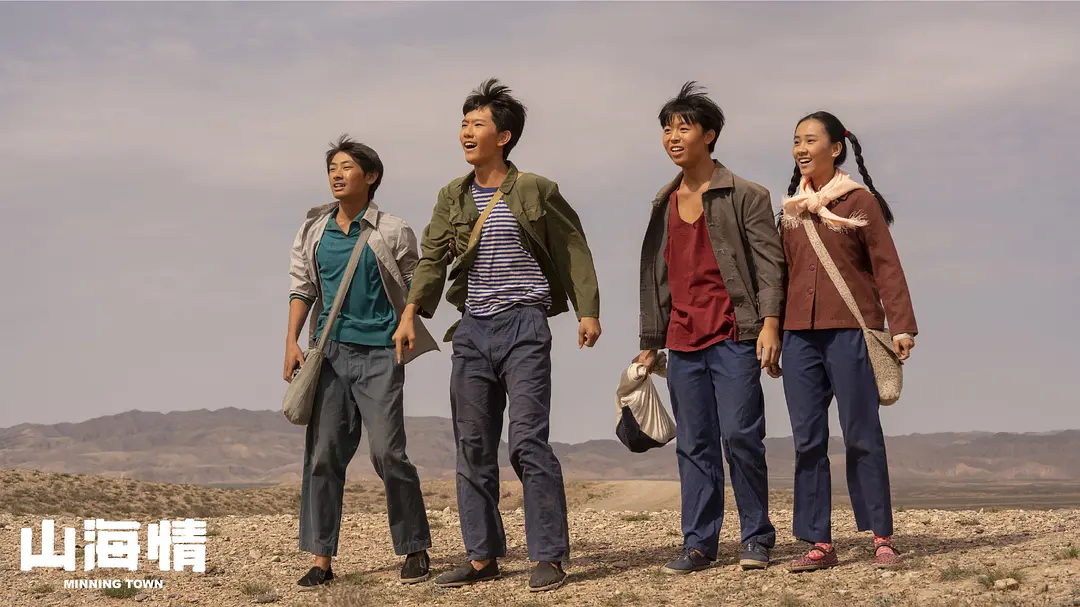226 | Xi Jinping's new era of film and television: Can China make the next "The Legend of Zhen Huan"?

By Jasmine (Columnist, Film Critic) Original publication time: October 26, 2022
For China, the "Twenty National Congress", which has attracted worldwide attention, not only means the formation of a new leadership team and the determination of major policies for the next five years, but also the summary of past "achievements". Not only government departments, but also the industry, academia, and all walks of life, including the film and television industry that demonstrates China's "soft power".
The "China Film Report" column of "Movie Channel" (CCTV-6) has planned the special topic "Ten Years of Chinese Films", reviewing the transcripts of Chinese films over the past ten years: In 2012, the year Xi Jinping took office, the box office revenue of Chinese films (17 billion yuan) surpassed Japan for the first time, when the total number of screens in China was 13,118. In 2020 and 2021, China surpassed North America for two consecutive years to become the world's largest film market, and the number of screens has been the world's largest since 2016. As of the end of last year, there were 82,248 screens in mainland China.
In the past ten years, the total box office of Chinese films has accumulated to 407.09 billion yuan. Among them, the box office share of domestic films has been more than half since 2013. Last year, due to the gathering of “party founding gift films” in theaters, the box office share of domestic films was closer to 85%.
But the paradox is that Chinese films in the "new era" seem to be prosperous, but the mainland film-related We Media has often discussed "the Chinese film market is miserable" in the past two years. The industry leader "Huayi Brothers" has been losing money year after year since 2018, and "Beijing Culture", the star company that produced and released "Wolf Warrior 2" and "I'm Not the God of Medicine", has also lost money for three consecutive years.
When the film industry is on the rise, the dazzling box office numbers are themselves mixed with moisture. The self-media "Poison Eyes" once pointed out that in 2015, the box office of Chinese films exceeded the 40 billion yuan mark. At that time, the capital was crazy for the film market, and a lot of hot money poured in, but many people ignored that the cumulative investment of all parties in that year was as high as 4 billion yuan. The box office efficiency brought by "ticket supplement" - "1 million yuan ticket supplement can leverage 12 million yuan at the box office".
walk around the encyclopedia
Ticket supplement | The producer pays the distribution channel to sell movie tickets at a low price, in order to stimulate the box office and the number of moviegoers, achieve the effect of word of mouth, and then drive the box office number to rise.
However, consumers who go to the movies because of “cheap” ticket prices and the investment logic of “what makes money and what to shoot” are now gone forever. Film and television practitioners are well aware that now is not the "best era", but a time when the industry is sluggish and the industry is fragmented.
The current situation of Chinese film and television is also the most intuitive demonstration of the changes in China's political and economic environment, public discourse space and even aesthetic ability in the past ten years.
Censorship bans stifle the vitality of the film and television industry
The restrictions brought by censorship have a more obvious impact on episodes than movies, especially the decline in production is obvious to all.
From 2015 to 2018, it was a period of rapid development of China's TV drama market: about 1,100 episodes were filed each year, and the number of episodes registered exceeded 40,000. In those years, the phenomenal Lu dramas like "Langya Bang" and "The Legend of Miyue" , "Strategy of Yanxi Palace" are all "costume dramas". The widely circulated “Antiquities Order” in early 2019 can be seen as the first one-size-fits-all ban on “genre dramas” by the Chinese authorities since this century—and it was aimed at the ancient costume themes that occupied half of the entire industry at the time.
In the following years, the ban on "subject matter censorship and circumvention", which was explicitly issued by the State Administration of Radio, Film and Television and spread by word of mouth in the industry, continued to be introduced.
Ghosts, ghosts, and tomb robbing cannot be filmed. Beautification of the Republic of China must be strictly controlled. The three views of realistic themes must be positive and not negative and decadent. Puppy love abortion and sweet love must be avoided. Homosexual subjects are even more explicitly prohibited. One of the reasons for the popularity of last year's costumes "Danjiao" and "Ling of Mountains and Rivers" is that Chinese netizens praised the show for demonstrating how to "tenderly obscure the gaze of modern censorship."

The direct impact of the censorship of various tangible and intangible themes is that from 2019 to 2021, the output of Chinese TV dramas declined for three consecutive years, and the total number of episodes released last year (6,736 episodes) dropped by nearly 50% compared to 2018. However, the State Administration of Radio, Film and Television believes that this is a necessary process for "reducing the quantity and improving the quality" to create a "high-quality TV series".
The "14th Five-Year Plan for the Development of Chinese TV Dramas" emphasizes that from 2021 to 2025, more than ten "themed TV dramas with profound thinking, exquisite art and well-produced" will be launched each year. Such as "Mountains and Seas", "Awakening Age", "Ideal Shining in China", and "Transnational Yalu River" are "new era boutiques" that meet official expectations.
To be fair, some dramas that "refine the theme from the party's century-long struggle" are also seeking breakthroughs. For example, last year's "Awakening" used a youthful and enthusiastic way to deal with the history of the CCP. The official hope is that the main theme and "positive energy" dramas will continue to appear "explosive models" to attract young audiences. Traffic stars have to conform to the "big picture", so Xiao Zhan, who has acted in "Danjiao" and "Chen Qingling", will also play the military theme "Ace Trooper".
However, when the diversity of subject matter is completely stifled, Chinese TV dramas will no longer be able to reproduce the vitality and influence of ten years ago. Today's big productions must bear the "mark of the times", and capital will no longer dare to easily set foot in the TV drama market. In the past, a "Zhen Huan Biography" became popular all over Southeast Asia, and it could trigger a second creation to allow the UP master to make a million fan accounts. It is difficult to replicate the situation.
"Tiger Sniff" said that today's era "has nostalgic disease". Although many domestic dramas are still actively "going overseas" to sell overseas copyrights, domestic audiences still think the dramas from ten years ago are better. Nostalgia is a compensation for the present. Everyone "swallowed more than 20 yuan of takeaways with the background sound of "The Legend of Zhen Huan". This may be one of the few moments when they have peace of mind in the era of anxiety."
This can also reflect from the side that the golden age of Chinese dramas has passed.

"New Mainstream Movies": Upgrading Main Theme Movies?
..
[This article is not over, see the full text of the world walk: Xi Jinping's new era of film and television: Can China still make the next "The Legend of Zhen Huan"? 】
220. Five sets of figures to understand the "Twenty National Congress of the Communist Party of China"
221. She fell in love with a Chinese socialite in a Nazi concentration camp
223. After the big bang, they used heavy metal music to sing grief and rebellion
224. What Swift Taught Me About Fragility
225. Yan Jiyu: British Prime Minister Truss defeated by Lettuce
226. Xi Jinping's new era of film and television: Can China still produce the next "The Legend of Zhen Huan"?
"World Walk" is a new start-up and hopes to become a gender-conscious international news media. It hopes to interpret fascinating stories from all over the world from a new perspective that escapes dualism 🌎
From now on, we will continue to meet you in " World Walk Sehseh.world ". In the future, in-depth articles will only be published in the new station. Evening and weekly newspapers will continue to be sent on Matters. Click the link below to subscribe to the e-newsletter , and don’t miss the wonderful articles💕
Like my work? Don't forget to support and clap, let me know that you are with me on the road of creation. Keep this enthusiasm together!



- Author
- More